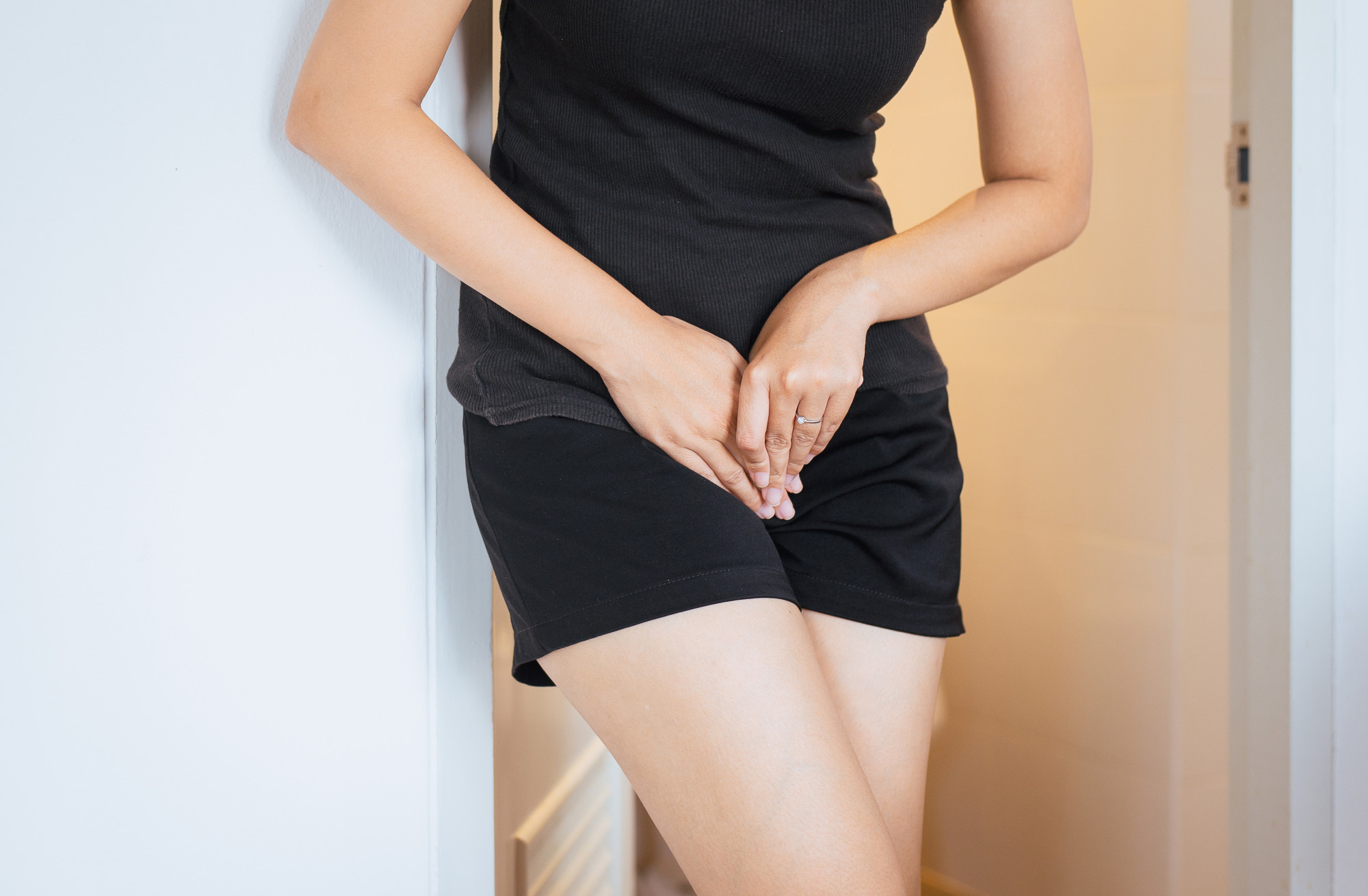
Urine Incontinence Causes in Women
Urine Incontinence in women may develop during development in the womb with the urinary tract as a birth defect or may be related to the genetics as it can be a family trait.
The racial background of a woman may also dictate urinary incontinence. Pregnancy often sees an increase in the urge to urinate as the growing fetus can place pressure on the bladder (temporary bladder leakage).
Urine Incontinence in women may also be caused by damage to the pelvic floor muscles during childbirth as they can be overstretched or after childbirth or surgery as a result of pelvic organ prolapse disorder. This condition may see the bladder drop out of normal positioning.
Hormonal changes to the female body as seen during menopause can cause urinary incontinence/bladder leakage. The reduction of hormones produced result in weakness of the bladder and urethra linings.
Urine Incontinence in Men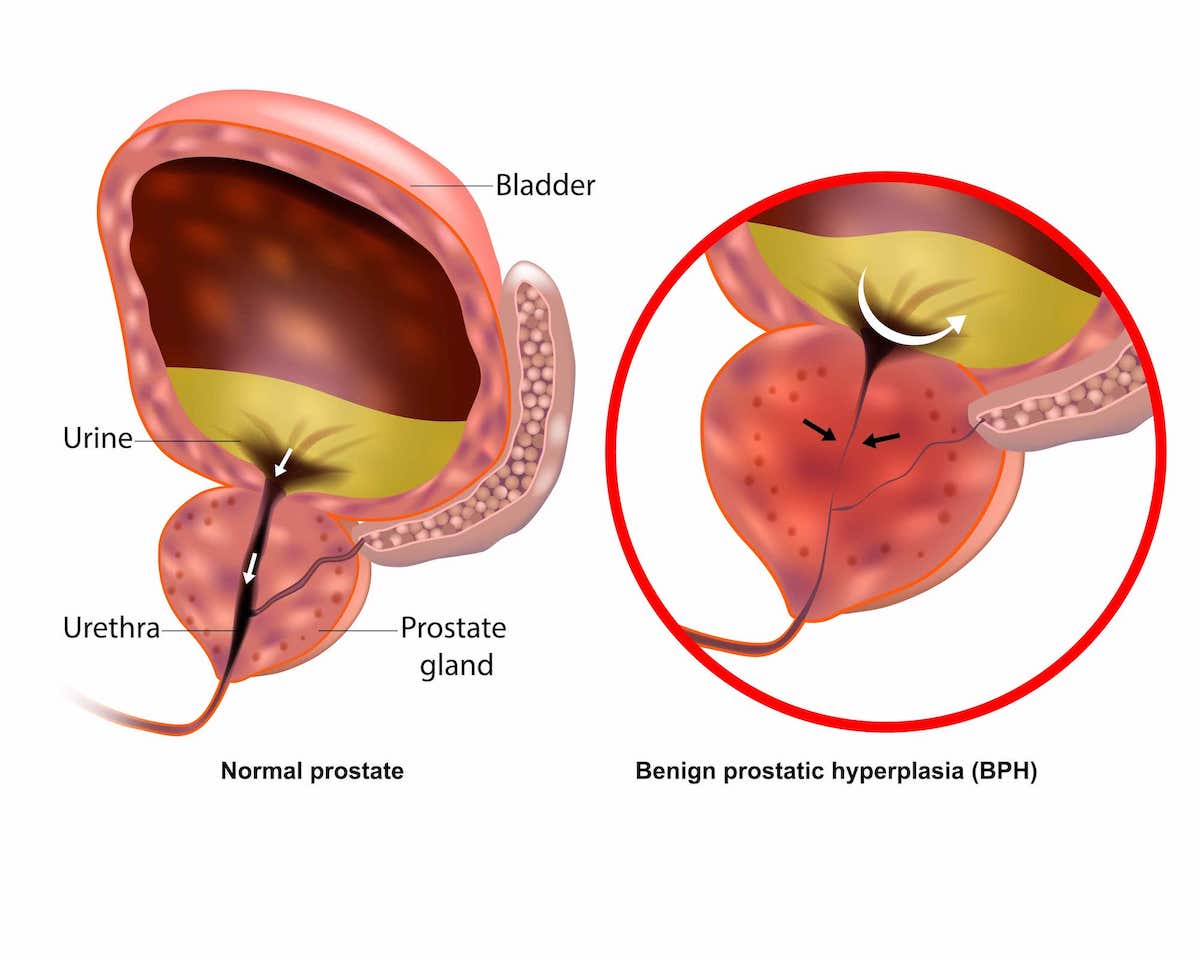
Urine Incontinence in men can be caused by a birth defect of the urinary tract or with a history of prostate cancer, obesity, the results of male prostate surgery, or the effects of some allopathic medications, weaken the muscles.
An enlarged prostate without cancer cells may lead to a condition known as benign prostatic hyperplasia, or BPH. This condition causes the prostate to expand and apply pressure to the urethra, resulting in the walls of the bladder also expanding and thickening. Over time, the bladder weakens and retains some volume after urination.
The treatment from radiation and some allopathic medication may result in temporary or permanent bladder leakage.
Different Types of Urine Incontinence
The bladder leakage can be linked to a specific type based on the volume, frequency, or association with an underlying health condition.
1. Stress Incontinence
With stress incontinence, leakage is usually linked to weak pelvic floor muscles. These muscles can weaken from the excessive pressure placed on the bladder as it becomes full. This pressure often overpowers the urethra’s ability to remain closed to prevent leakage.
Small or moderate amounts of urine may escape during a time of coughing, laughing, sneezing, or with lifting heavy objects (a type of stress); during exercise routines may also cause this type of incontinence to develop, even sometimes during the act of sexual intercourse.
2. Urge Incontinence
Urge incontinence may be caused by an overactive bladder, resulting in frequent bathroom trips due to muscle spasms. These spasms stimulate urination and are usually caused by damage to the bladder muscles and nerves, resulting in uncontrollable bladder issues.
Certain allopathic medications may also have an effect on the detrusor muscles found in the bladder walls. These muscles are responsible for allowing the bladder to fill with urine by relaxing before contracting during urination.
Some health disorders and diseases such as Parkinson’s disease, multiple sclerosis, bladder stones, diabetes, Alzheimer’s disease, and even stroke can cause urge incontinence.
3. Functional Incontinence
Functional incontinence occurs in those who have difficulty accessing a bathroom before urinating. The bladder and pelvic floor muscles are often in great shape and have full strength.
This type is seen in patients with physical and mental impairments related to conditions such as Alzheimer’s disease, dementia, Parkinson’s disease, or arthritis.
4. Overflow Incontinence
With overflow incontinence, the bladder does not empty completely and allows dribbles of urine to be expelled. There is no sensation to urinate at this time and can be referred to as chronic urinary retention.
This type of incontinence is often seen in men with enlarged prostates and with women experiencing health conditions of the pelvic region. Overflow incontinence may be caused by nerve damage, weak bladder muscles, some allopathic medications, bladder blockage and/or constipation.
5. Mixed Incontinence
Bladder leakage conditions that stem from more than one form of incontinence, whether stress, urge, functional, or overflow (Women can be often diagnosed with stress and urge incontinence at the same time).
6. Transient Incontinence
A transient (temporary) incontinence refers to a temporary condition of a bladder leakage. It is often seen with complications after surgery, an irritated bladder, chronic constipation, and as a side effect of some diuretic and sleep-induced medication.
7. Total Incontinence
A total loss of bladder function is referred to as total incontinence. This may be a result of nerve or bladder damage or disease that hinders the regular functioning of the bladder. Some cases of multiple sclerosis and spinal cord injuries may see a malfunction of the bladder to store urine.
Diagnosis Urine Incontinence
A bladder leakage diagnosis requires more than just experiencing frequent urination and leaks during the day and night. A proper diagnosis will determine the type of urinary incontinence as well as the appropriate course of treatment.
Physical examination of the pelvic region; women patients should expect an inspection of the vaginal walls, and men may require a digital rectal examination in addition to examination of the scrotum.
Medical tests such as a urinalysis (to detect any blood, infection, or cancer cells).
Blood tests may also be done to determine if any health conditions are at play.
Pelvic ultrasound (US-pelvic) would show physical damage to the bladder, while a postvoid residual measurement test reveals if the bladder empties completely after urination.
Stress test to check for urine leakage during forced coughing spells.
A urodynamic test to measure tolerance of pelvic floor muscles.
Cystogram X-ray – In this test, an injection dye in the bladder may show problems within the urinary tract during urinating.
A tube may be required to be placed in the urethra with a cystoscopy procedure. This allows the inner lining of the bladder and the urethra to be visualized.
Urine Incontinence Physical Treatment
Bladder leakage treatment is based on the underlying cause and type of urine incontinence. Both men and women may face similar challenges within the treatment plan.
A treatment plan usually begins with behavioral and lifestyle changes such as exercises for leaky bladder. Medications may be required alongside behavioral tasks to reduce muscle spasms or health conditions such as prostate enlargement. In severe cases, surgical procedures may be necessary.
Behavioral Changes
Behavioral changes begin with training the bladder as to the timing of urination.
Men and women alike can follow timed voiding by going to the bathroom at set times with adding minutes to each bathroom break. This may help train the bladder to hold more urine.
Another technique to try may be urgency suppression. This entails training the bladder to have control over the urge to expel. Timed voiding will help as will distracting from the urgency with mind thoughts and concentrating on other tasks. (like, taking deep, long breaths and sitting still until the urge passes).
Lifestyle Changes
The main change in lifestyle that may help with bladder leakage is performing regular exercise with specialized techniques to strengthen the pelvic muscles.
Exercises of the pelvic floor muscles are referred to exercises. These strengthen the muscles that may help slow down or stop bladder leakage by preventing the urine from leaking out.
Exercises for women begin with identifying the pelvic muscles by stopping the urine midstream. Avoid performing these exercises during urination often, as it may cause the muscles to weaken. 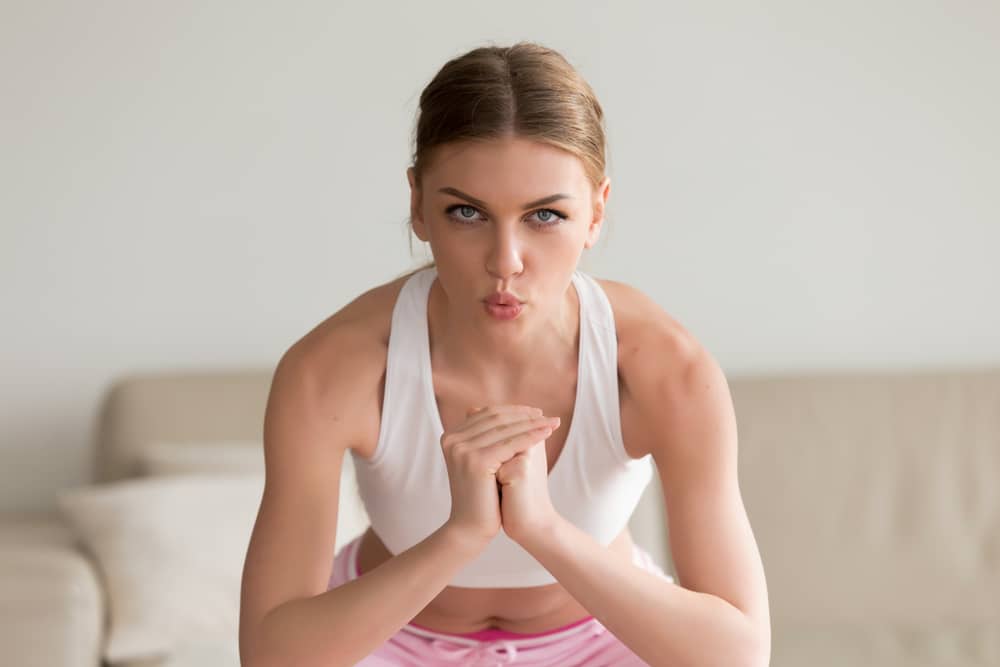
The pelvic floor muscles should be the only ones contracted. Avoid using the abdominal muscles, thigh muscles, or buttock muscles. Breathe normally during the exercises. Once you know which muscles to tighten, perform this exercise at anytime, anywhere.
Hold the tightening position for five seconds, relax muscles for five seconds, and then begin again, progressing to a hold of 10 seconds. Once a 10-second hold and release period is obtained, repeat three sets of 10 repetitions daily.
Exercises for men are performed similarly, the key muscles are identified by stopping urination midstream or by tightening the muscles as though to avoid passing gas. Again, only stop midstream this one time.
Men begin strengthening the pelvic floor muscles by hold and releasing tensing of muscles for three-second intervals, working up to 10-second sets.
Avoid tobacco use. Bladder cancer and prostate may also be caused by smoking, and urinary incontinence is an effect of this type of cancer.
Allopathic treatment for Urinary Incontinence
There are many ways to treat UI, treatment plan is directed at the underlying cause.
Medication Options
These drugs are commonly used to treat UI, specifically urge incontinence:
- To calm overactive bladders and help suppress urge incontinence: oxybutynin, tolterodine, darifenacin, fesoterodine, solifenacin, and trospium.
- Mirabegron treats urge incontinence by relaxing the bladder muscle and increasing bladder capacity, helping you completely void your bladder.
- For men with urge or overflow incontinence, alpha blockers relax bladder neck muscles and prostate muscle fibers, enabling easier emptying of the bladder: tamsulosin, alfuzosin, silodosin, doxazosin, and terazosin.
- For women, a low-dose topical estrogen in the form of a vaginal cream, ring, or patch can help strengthen urethra and vaginal area tissues. (Warning: The pill version may make UI worse.)
Surgery or Implants
The two most common surgical procedures used to treat stress incontinence include sling procedures (there are male and female sling designs) and bladder neck suspension procedures.
Sacral nerve stimulation is sometimes used to treat overactive bladder. This treatment involves a surgical procedure that implants a small device below the skin of the buttock. This device periodically generates a mild electrical stimulation to the sacral nerves, which results in increased tension in the bladder, sphincter, and pelvic floor muscles.
With injectable implants, a doctor injects material into the urethra wall to bulk up and tighten the tissue. This stops urine leakage and incontinence caused by a weak sphincter muscle.
Homeopathic treatment for Urine Incontinence
Urinary incontinence is a psychological problem, which causes lot of embarrassment and restrict people from social life, and it may subsequently lead to depression. The scope of treatment for this condition in modern medicine is mostly limited to surgery. Homeopathy offers best treatment for urinary incontinence through safe medication without side effects. This system of medicine improves quality of life of patient, through individualized constitutional treatment.
Alone, or in conjunction with exercises, medication should be advice to help weakened pelvic floor muscles of your patient. Often times, the same drugs used to treat muscle spasms or infection can be used.
Here are few Homeopathic medicines for urine incontinence of different types and causes:
Arnica Montana
Bladder feels sore and full, pressure of urine hurts. Involuntary dribbling with constant urging. Involuntary emission of urine, at night in bed, and in the day, when running. Retention of urine after over exertion, after labor. After mechanical injuries.
Apis Mellifica
Apathy, indifference, and unconsciousness. Awkward, has incontinence of urine at night. Patient cannot urinate without a stool. Dysuria with stinging pain. Last drop stings and burns, frequent and involuntary. An increased flow of urine shows that the drug is having a favorable effect. Urine frequent and involuntary; stinging pain and strangury; scanty, high colored. Incontinence. Last drops burn and smart.
Causticum
The most important pathogenesis of Causticum is paralysis or paresis of bladder sphincter, progressive loss of muscular strength, tendinous contractures, gradually appearing paralysis. Local paralysis. Symptoms are involuntary urination during coughing, sneezing, on walking or on blowing nose. Urine is expelled very slowly and retained sometimes. Enuresis during first sleep at night; also, from slightest excitement. Useful for urine retention after surgical operations and after labor/delivery. Loss of sensibility during urination; can’t tell when urine is passing in the dark, except only by the sense of touch. Bladder Paralysis, from long retention of urine, and consequent incontinence. Urine passes involuntary when coughing, sneezing. Expelled very slowly, and sometimes retained. Involuntary during first sleep at night also, from slightest excitement. Retention after surgical operations. Loss of sensibility on passing urine.
Equisetum
Its principal action is on bladder. Equisetum is to be thought of in weakness of the bladder, with dribbling, in insane people who will not attend to the bladder, and in incontinence of urine in old men. A medicine for enuresis and dysuria. Severe, dull pain and feeling of fullness in bladder, not relieved by urinating. Frequent urging with severe pain at the close of urination. Urine flows only drop by drop. Sharp, burning, cutting pain in urethra while urinating.
Incontinence in children, with dreams or nightmares when passing urine. Incontinence in old women, also with involuntary stools. Retention and dysuria during pregnancy and after delivery. Much mucus in urine. Albuminuria. Involuntary urination. Deep pain in kidney with urgent desire to micturate. Right lumbar region painful. Nocturnal enuresis, without cause except habit. Passed small amount of urine but felt as if had not urinated for hours.
Kreosotum
One of the best medicines for urinary incontinence. Malnutrition, lean, ill-developed, poor people. Offensive urine. They can urinate only during lying and they cannot get out of bed quickly enough during first sleep. There is enuresis in night during first part of sleep, from which child is roused with difficulty. Must hurry when desire comes to urinate. Urination involuntary, when lying, on coughing. Wets bed at night, wakes with urging, but can’t retain urine, or dreams he is urinating in a decent manner.
Lycopodium
For persons intellectually keen, but physically weak, gradually developing, functional power weakening, with failures of the digestive powers, where the function of the liver is seriously disturbed. Atony. Malnutrition. Mild temperaments of lymphatic constitution, with catarrhal tendencies; older persons, where the skin shows yellowish spots, earthy complexion, uric acid diathesis, etc; also precocious, weakly children. Complaints are from anger, mortification, fright, or vexation with reserved displeasure. Borick Materia Medica says. In nearly all cases where Lycopodium is the remedy, some evidence of urinary or digestive disturbance will be found. Urinary symptoms include involuntary urination especially in fever. Long lasting incontinence of urine resulting from fright during coition. Polyuria. Enlarged prostate. Varicose veins of pudenda.
Natrum Muriaticum
Cachectic and anemic patients; whether from loss of vital fluids; seminal losses, profuse menses, or mental affections. Bad effects: of anger; fright, grief, vexation, mortification or reserved displeasure. Involuntary urination when coughing; 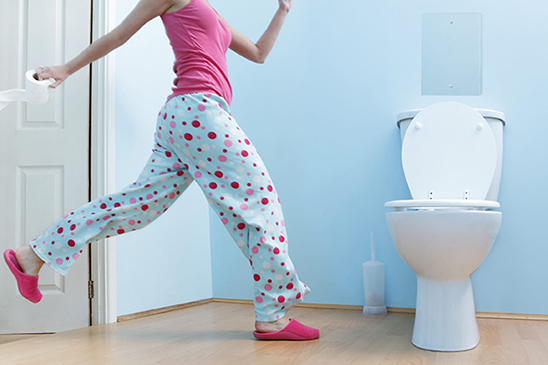 sneezing, laughing, walking, sitting. They have to wait for quite a long time for urine to pass if others are present. There is slowing down of the action of the bladder. They can’t retain urine as they have frequent or sudden desire to urinate, with copious flow. Great weakness and weariness. Oversensitive to all sorts of influences. Hyperthyroidism. Goiter. Addison’s disease. Diabetes.
sneezing, laughing, walking, sitting. They have to wait for quite a long time for urine to pass if others are present. There is slowing down of the action of the bladder. They can’t retain urine as they have frequent or sudden desire to urinate, with copious flow. Great weakness and weariness. Oversensitive to all sorts of influences. Hyperthyroidism. Goiter. Addison’s disease. Diabetes.
Phosphorus
This drug is indicated for tall slender persons of sanguine temperament, delicate eyelashes, fair skin, fine blond, or red hair, quick perceptions, and are very sensitive nature. Very useful remedy for urge incontinence and overflow incontinence. Sudden urge to urinate without pain when it is passing. Urine is acrid and smells offensive. Involuntary urination in children who grow too rapidly. Incontinence of urine in aged persons from paralysis of sphincter. Full bladder but causing no trouble or desire to urinate; unable to pass urine or incontinence, both from paralysis of bladder. Involuntary stools.
Psorinum
Debility, independent of any organic disease, weakness remaining after acute disease. Lack of reaction. Muscular pseudohypertrophy, neuritis. Paralytic symptoms. Ailments are from even slight emotions, suppression of itch or in other skin diseases, when Sulphur remedy fails to relieve. Has to pass urine several times, from weakness of bladder. Enuresis is from bladder paresis, which has aggravation at full moon, also for obstinate cases, with a family history of eczema. Urine is thick, turbid, whitish or red deposit, with formation of cuticle on surface of urine. Escape of urine during coughing. Urine incontinence.
Pulsatilla Pratensis
Increased desire; worse when lying down. Burning in orifice of urethra during and after micturition. Involuntary micturition at night, while coughing or passing flatus. After urinating, spasmodic pain in bladder. Any type of urine incontinence. Urinary symptoms include „as if urine is impossible for them to delay‟; they can scarcely wait for urine when they have urinated sensation, they feel as if it would gush away. Involuntary micturition at night, on laughing, coughing or passing flatus; sneezing, after pleasurable surprise, shock, on hearing sudden noise; during sleep, esp. in little girls. They have dribbling of urine with anger, when sitting or walking. Nocturnal enuresis seen after measles; and in autumn; especially in little girls. Acute prostatitis.
Sepia/arc-anglerfish-arc2-prod-pmn.s3.amazonaws.com/public/HVGGFDYOLVBHJLVGM2JMK7VFWA.jpg)
Tendency to abortion. Hot flashes at menopause with weakness and perspiration. Bed wetting, stress and urge incontinence. Its symptoms include involuntary urination, during first sleep; child passes urine as soon as he goes to sleep. Involuntary urination aggravates coughing, sneezing, laughing, hearing sudden noise, fright or inattention, esp. in women. Urine incontinence. Enuresis nocturnal in boys of light complexion; in onanists. Involuntary urination if desire is not immediately complied with. Urine deposits a reddish clay-colored sediment which adheres to the vessel as if it had been burned on; fetid, so offensive must be removed from the room is most important symptom for differentiation. Involuntary urination, during first sleep. Chronic cystitis, slow micturition. Pelvic organs relaxed. Bearing-down sensation.
Staphysagria
Nervous affections with marked irritability, diseases of the genitourinary tract. Sensitive to rudeness, depressed people. Irritable bladder in young ladies. Indignation, mortification, envy, chagrin, pride, unmerited insults, vexation or reserved displeasure and for the bad effects sexual excesses, onanism and loss of vital fluids. Staphysagria is useful for stress and urge incontinence. Incontinence from infection, Honeymoon cystitis. Involuntary and copious micturition, esp. on coughing. Involuntary discharge of urine – urine incontinence, acrid and corroding, aggravates motion. Ailments after catheter, lithotomy. Sphincters lacerated or stretched. Prostatic troubles; frequent urination.
Cantharis
Prevented urinary and sexual organ’s functions. Over sensitiveness. Intolerable, constant urging to urinate. Dysuria, with other complaints. Increases secretion of mucous membranes, tenacious mucus. The inflammations cantharis produces (bladder, kidneys, ovaries, meninges, pleuritic and pericardial membranes) are usually associated with bladder irritation. Intolerable urging and tenesmus. Nephritis with bloody urine. Violent paroxysms of cutting and burning in whole renal region, with painful urging to urinate; bloody urine, by drops. Urine incontinence. Intolerable tenesmus. Puerperal metritis, with inflammation of bladder.
Pareira Brava
Renal colic, prostatic affections, and catarrh of bladder. Sensation as if bladder were distended, with pain. Pain going down thigh. Urine black, bloody, thick mucus urine. Urine incontinence. Constant urging; great straining. Feeling of the bladder being distended with neuralgic pain. Inflammation of urethra.
Sulphur
Frequent micturition, especially at night. Enuresis, especially in scrofulous, untidy children. Burning in urethra during micturition, lasts long after. Mucus and pus in urine; parts sore over which it passes. Must hurry, sudden call to urinate. Great quantities of colorless urine. Stitches in penis. Involuntary emissions. Urine incontinence.
Cantharis, Pareira Brava, Staphysagria and Sulphur are recognized as the most effective medicines for urge incontinence. Cantharis is one of the most reliable medicines for urine incontinence where there is a constant desire to urinate.
In cases where the urge to urinate is very strong but the person can emit urine only when he goes down on his knees and strains really hard, Pareira Brava will be one of the most reliable prescriptions.
For ineffectual urge to urinate in newly married women, Staphysagria is the best choice.
Sulphur is very effective in cases with pain in the bladder if the urge to urinate is not attended.
Clematis
Increased secretion of urine. Purulent urine. Secretion diminished; the last drops cause violent burning or secretion slow and in a small stream. Urine incontinence. During urination, pulling in the spermatic cord. micturition. Stitches in the urethra; stitches from the abdomen into the chest. Contraction of the urethra, with the urine stopping suddenly, or only flowing drop by drop; jerk-like tearing in fore part of urethra in the intervals. Itching on the genitals. Drawing pains, in the testes and in the spermatic cord, extending to the groins and the thighs. Painful inflammation and swelling of the testes.
Zingiber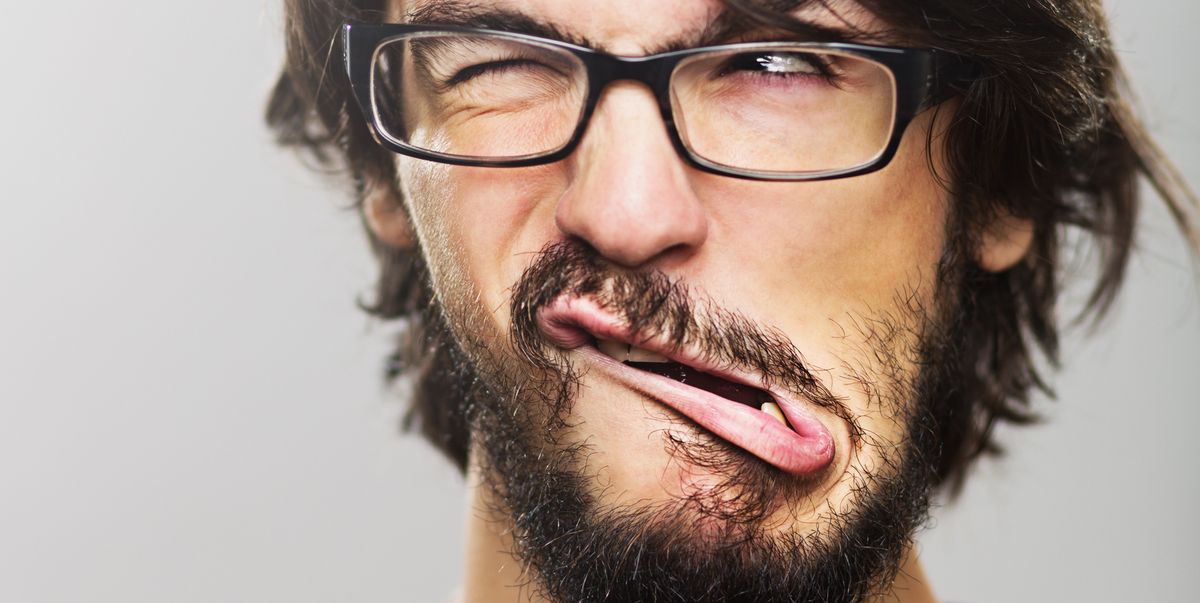
Frequent desire to urinate. Urine incontinence. Stinging, burning in orifice. Yellow discharge from urethra. Urine thick, turbid, of strong odor, suppressed. Complete suppression after typhoid. After urinating, continues to ooze in drops. Itching of prepuce. Sexual desire excited; painful erections. Emissions.
Kali Bichromium
Note- Never use any Salts of Potash where there is fever. Fleshy aged people, with dropsical and paretic tendencies, sweat, backache, and weakness. Tendency to dropsy. Tubercular diathesis. Nocturnal urination (rise several times at night to urinate). Pressure on bladder long before urine comes. Urine incontinence. Involuntary urination when coughing, sneezing, etc.
Lilium Tigrinum
Manifests powerful influence over the pelvic organs and is adapted to many reflex states dependent on some pathological condition of uterus and ovaries. More often indicated in unmarried women. Urine incontinence – urinary frequent and with urging. Constant desire to defecate, from pressure in rectum, worse standing. Pressure down the anus. Early-morning urgent stool.
Senecio Aureus
Urine incontinence. Urinary scanty, high-colored, bloody, with much mucus and tenesmus. Great heat and constant urging. Nephritis. Irritable bladder of children, with headache. Renal colic. Lascivious dreams, with involuntary emissions. Prostate enlarged. Dull, heavy pain in spermatic cord, extending to testicles.
Baryta Carbonicum
Every time patient urinates, his piles come down. Urging to urinate. Burning in urethra on urinating. Enlarged prostate. Testicles indurated. Degenerative changes.
Prunus Spinosa
Special action on the urinary organs and head. Very valuable in certain neuralgias, anasarca, and especially oedema podium. Urine incontinence cases where the urine seems to pass as far as glans and then returns, causing pain in the urethra. Tenesmus of bladder. Ineffectual effort to urinate. Hurriedly impelled to urinate.
Alumina
Paretic muscular states of old people or due to chronic illness. Muscles of bladder paretic must strain at stool in order to urinate. Pain in kidneys, with mental confusion. Urine Incontinence. Frequent desire to urinate in old people. Difficult starting. Excessive desire. Involuntary emissions when straining at stool. Prostatic discharge.
Secale Cornutum
Paralysis of bladder. Retention, with unsuccessful urging. Discharge of black blood from bladder. Enuresis in old people. Muscular weakness.
Bladder Leakage Surgery
If the urine incontinence is caused by a blockage within the bladder, surgery may resolve the issue.
Medical devices may include a catheter to be inserted through the urethra and into the bladder for easy drainage of the bladder. Women may have a urethral insert disposable device placed to prevent leaks or a pessary ring inserted into the vagina. This stiff device applies pressure to the walls of the urethra and vagina to stop leakage.
P. S: This article is only for doctors having good knowledge about Homeopathy and allopathy, for learning purpose(s).
For proper consultation and treatment, please visit our clinic.
None of above-mentioned medicine(s) is/are the full/complete treatment, but just hints for treatment; every patient has his/her own constitutional medicine.
To order medicine by courier, please send your details at WhatsApp– +923119884588
 Dr. Sayyad Qaisar Ahmed (MD {Ukraine}, DHMS), Abdominal Surgeries, Oncological surgeries, Gastroenterologist, Specialist Homeopathic Medicines.
Dr. Sayyad Qaisar Ahmed (MD {Ukraine}, DHMS), Abdominal Surgeries, Oncological surgeries, Gastroenterologist, Specialist Homeopathic Medicines.
Senior research officer at Dnepropetrovsk state medical academy Ukraine.
Location: Al-Haytham clinic, Umer Farooq Chowk Risalpur Sadder (0923631023, 03119884588), K.P.K, Pakistan.
Find more about Dr Sayed Qaisar Ahmed at:
https://www.youtube.com/Dr Qaisar Ahmed
